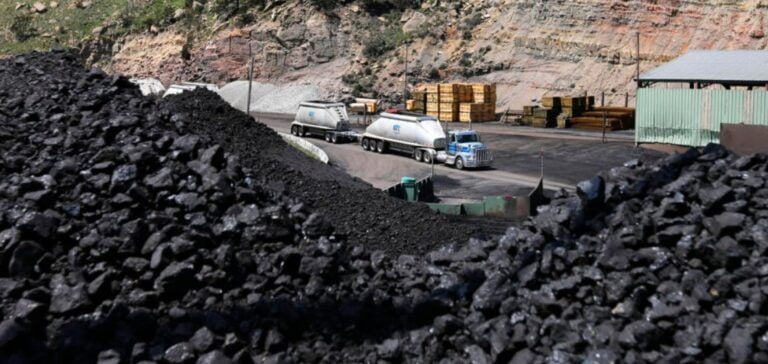Joe Biden’s administration recently announced a halt to new coal leases in the region that produces the most coal in the United States. This decision is part of an energy policy aimed at reducing CO2 emissions by promoting renewable energies. Since 2017, coal production has already fallen by 25% thanks to the competitiveness of natural gas and renewable energies. In addition to this measure, strict rules will be imposed on coal-fired power plants by 2032. Those that remain operational will have to virtually eliminate their CO2 emissions through carbon capture, or face closure. The region concerned stretches from Montana to Wyoming, producing almost half of America’s coal. Current concessions are not affected by this measure, with sales in the oil and wind sectors.
Contradictory reactions
This decision received a mixed reception. Drew Caputo, president of the Earthjustice organization, hailed a “colossal decision” that will preserve the environment and reduce carbon emissions. Indeed, he points out that:
It’s “a colossal decision that will save lives, preserve our environment and dramatically reduce carbon emissions in the United States.” Adding that, “For years, environmental groups have pleaded for this to happen, arguing that the federal government couldn’t simply lease our public lands to mining companies while ignoring the public health consequences.”
However, Rich Nolan, president of the National Mining Association, strongly criticized the move. He calls it “outrageous” and says it undermines American energy security while dealing a significant economic blow to mining states and their communities.
Political implications
This energy initiative comes at a crucial time, as Joe Biden prepares to face Donald Trump in the November presidential election. Biden is banking on his climate action to attract young voters, contrasting with his opponent’s climate skepticism. The President’s environmental decisions are aimed at mobilizing an electoral base concerned about the climate crisis.
Economic and environmental issues
The mining sector, traditionally supported by states such as Montana and Wyoming, finds itself in difficulty in the face of these new regulations. The measure is likely to have a major impact on local jobs and the local economy, which are heavily dependent on coal. However, environmentalists see this as an opportunity to promote more sustainable industries and protect public lands from the negative impacts of mining.
Future prospects
The end of new coal concessions represents a significant change of direction for Joe Biden’s and the United States’ energy policy. While this decision may have short-term economic repercussions, it could also encourage innovation in carbon capture technologies and the transition to cleaner energy sources. The success of this transition will depend on the commitment of stakeholders to work together to balance economic and environmental needs. The Biden administration will have to navigate these competing interests to achieve its climate goals while supporting affected communities.
The Biden administration’s halting of new coal leases marks a decisive step in US energy policy. This decision could catalyze progress in the fight against climate change and the promotion of renewable energies. Biden’s ability to reconcile economic development with environmental protection will be decisive for America’s energy future.






















